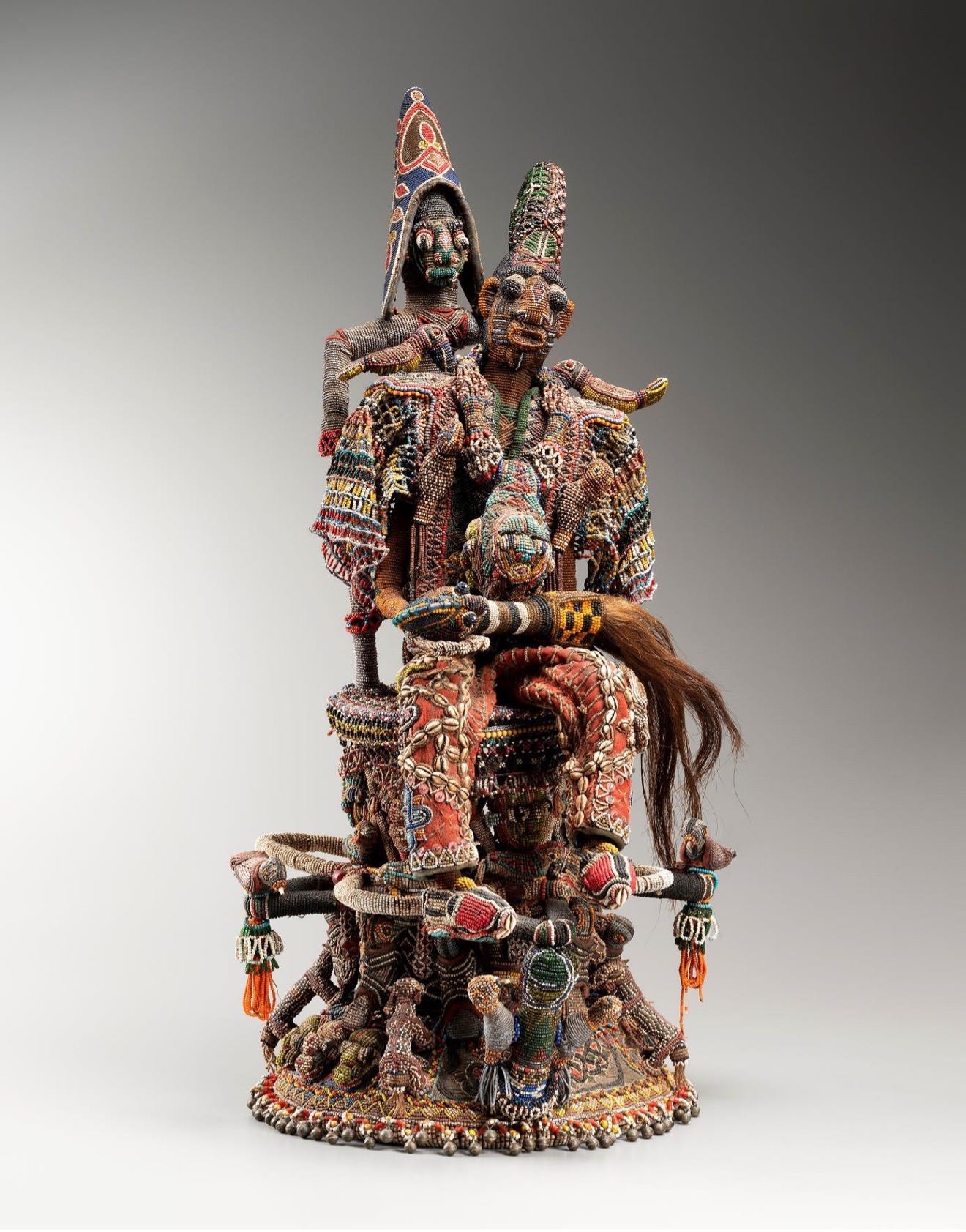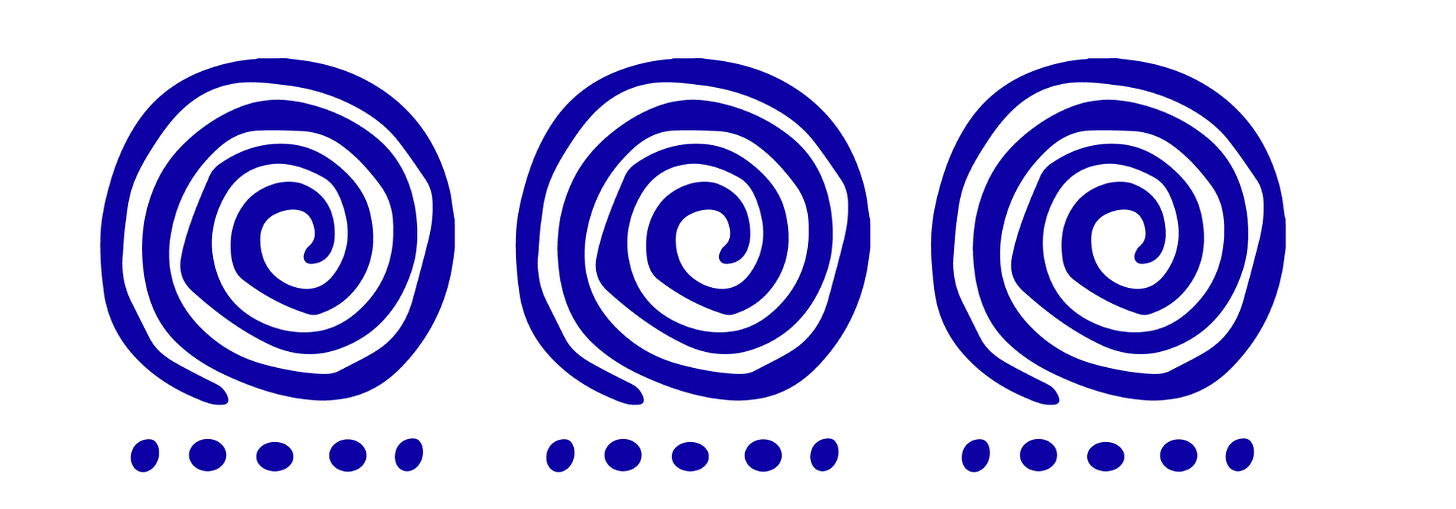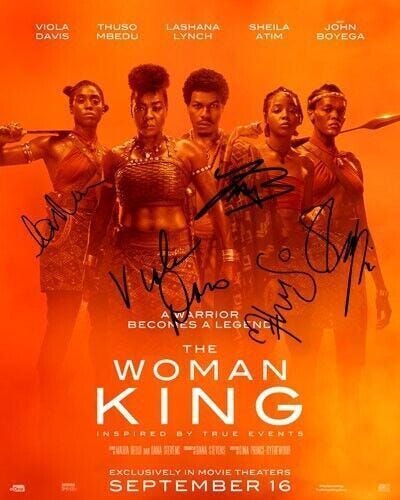I suspect my opinion about the movie, “The Woman King,” will not be popular and, I am ok with that. It has taken me a minute to write this because I wanted to be very careful and think deeply about what I wanted to share. I had my own mix of emotions of pride and disappointment, nostalgia, and regret. My invitation to you is to encourage us all to use this movie as a truth-telling opportunity.
Historical Fiction
The movie is set in 1823 in the West African kingdom of Dahomey (modern Benin). The movie pits the innocent Dahomeans, protected by the elite all-female Agojie army, against the Oyo empire who wanted to force Dahomey into providing slaves.
Contrary to the film’s depiction, the Agojie were primarily slave raiders who carried out wars of conquest on Dahomey’s neighbors. They captured people from their neighbors and sold them into slavery.
As the movie does not focus on the reality of the role the Dahomeans played during slavery, there are calls to boycott the movie and Viola Davis has said, this is not history, but it is historical fiction. She acknowledges that historical accuracy was not, and cannot be the job of Hollywood, because ultimately the focus is on entertainment. I agree.
Drawing attention to inaccuracies of the story is important, but I don't support the hashtag #BoycottWomanKing as this is cancel culture. When we Black folk start canceling each other out, we are falling into the hands of our oppressors. United we stand, divided we fall. For us to be whole humans and reclaim our narrative, we must live in the nuance, in the liminal space, the gray areas. This movie provides a lot of that for us.
May I say, enslavement of Africans was not so “black and white.” Pardon the ridiculous pun and keep reading.
About The Slave Trade
To heal a wound, we must examine it, excavate it carefully, soothe the pain, and air it out to welcome the healing process.
To understand the enduring impact of the horrors of the Trans-Atlantic slave trade, we must first understand the context of world from the 15th to the 18th centuries. This is an examination and excavation.
You do not have to like it, but slavery has always existed. #Facts It has been a method of attaining wealth, power, and status. Historically, there have been different forms of slavery, even within Biblical stories. It is all about labor and getting labor for the lowest possible price, a practice still in effect today. Sometimes, the price was treating humans as non-humans, like cows and horses, to extract the most out of them.
Western civilization, with the increasing ease of transport via the water, and compasses and maps, invaded our African world with the Trans-Atlantic slave trade which lasted about 400 years. Just stop and imagine the impact of 400 years of buying and selling human bodies on the culture and politics of the Americas and Europe and its enduring legacy today.
How about the impact of 400 years of slavery on the indigenous tribes of Africa, in their own contexts? How often do we address this? Not often enough.
In 1823, when the film was set, there was already 300 plus years of the enslavement of African bodies. The film introduces us to a story on the land of West Africa and how they were coping with white people coming to change their world.
The Impact of 400 years on Local Geo-Politics
One of the aspects of the film is how Ouidah or Whydah grew into prominence because of slave trading and, spoiler alert, the women warriors of the Agojie burn it down. Ouidah is on the coast. Oyo empire is in the interior and is in a deeply wooded and forested area. Dahomey kingdom is closer to the coast but not as far inland as Oyo. The Dahomey kingdom should have had control of Ouidah as they were not as far inland, and closer in proximity to the coast, but the Oyo empire, which was further inland had control because they were more powerful in numbers and in aggression
The locus of power for many of these tribes for centuries was in the interior land of West Africa, not on the coastline. As my wonderful brother reminded me, the slave trade shifted the locus of power of many kingdoms, tribes, and ethnic groups to the coastline. As kingdoms tried to assert their power towards the coast, war ensued. Therefore, the other now smaller kingdoms, became the enemy and thus food for the ever-hungry Trans-Atlantic slave trade. This happened slowly and over time and with many wars
The Practice of Slavery
From the beginning of the transatlantic slave trade, enslavement could have not been the anathema to Africans as it is today, as indigenous communities also practiced slavery. That does not make it right. It just gives the context.
Within the Yoruba kingdom for instance, slavery was well practiced, even before white people came. When the various factions within the Yoruba kingdom expanded their borders, they acquired not just the land, but the people on the newly acquired land. Often, the conquering king could take the women as his wives and the men as slaves. The intention of such slavery was to expand the territory of the king and to increase his assets. Over time, these slaves would speak the language and become assimilated into their new town. That was always the goal. The more people and the more land a people had, the more powerful they were. You do not have power without money, resources, and land.
Many African tribes were warring tribes. In Nigeria for instance, the various tribes and ethnic groups did not live peacefully alongside each other. The Yoruba were fierce warriors, meaning they conquered neighboring towns, especially the non-Yoruba ones, and took over their land and took people as slaves. They would even take other Yoruba people as slaves to grow their political power. Enslavement also came about for people with unpaid debts, criminals, and even orphaned children.
Therefore, the white man coming to enslave people was probably not met with much surprise. And don’t forget, this is after the Arabs came and took slaves through the Sahara Desert in the north prior to the 16th century. Over time, the nature of the Trans-Atlantic slave trade changed as the white enslavers got greedy. It is well documented that what started as congenial trading occurrences between indigenous leaders and white enslavers, fast became a theme of war, as the enslavers kidnapped people and took them without permission of the leadership.
Then, the enslavers began the system of “be enslaved” or “give me slaves.”
The point is that the slave trade pitted indigenous African tribes against one another for survival.

Who Is “The Other?”
The Dahomeans spoke Fon. They Oyo spoke Yoruba. Not speaking the same language is the first step of "othering" in the African context. That we were all dark-skinned Black people did not matter to us. The Fon would have been the enemy of the Yoruba because they spoke a different language and wanted to enslave us. Our "othering" of another was not based on skin color as it is today in America. It was based on the historical understanding of another group of people as competition, war faring and a threat. We Africans are not a monolith.
When you introduce the explosive exploitation of enslavement to warrior people, it would have been a situation of be the enslaver or be the slave. And the white man came with cheap gifts, trinkets, guns, and alcohol to entice indigenous leadership into commodity exchanges to ease the capture and trade of enslaved people.
When white people came to Africa, they had direct relationships with indigenous leadership. They had translators and came with gifts from a foreign land. Such things would have increased the perception of power of a local king. Our own indigenous leadership also wanted to be on a global playing field. They wanted to trade and bring opportunities for white people to respect them and appreciate their power. This will not be a popular opinion, but it is #Facts
The problem with the issue of the “other” when it comes to white enslavers is that they believed that “scientific racism” proved that Black people were sub-human.
The advancement of science in western civilization led to the belief that white people were superior and Black people were “barbarians.” Towards the end of the 18th century, with the categorizing of animals and plants, western scientists also categorized humans, creating hierarchies based on brain size.
Beloveds, this had to be this way for people to justify their cruelty and wickedness.
Identity and Protection
For indigenous tribes, there is a long history of identity, language, culture, and relationship to the land. Any of these folks, like the Fon or the Yorubas of Oyo, have a long history, pride, attachment to their locale and a sense of ownership and stewardship of their land. It is something to protect, to be proud of, and their identities are rooted in that physical place and culture, as well as to each other. The land and the leadership are to be protected at all costs.
I suspect this is a strange concept for many people today. This is why so many Nigerians die in the US and their bodies have to be shipped back home to be buried on the land of their ancestors. We have something of value in the land and it is worth protecting.
In a communal society, where the sum of the whole is greater than the individual, you have an obligation to protect your ethnic group, your tribe, your land, your town and even your family name.
Why did the Agojie arise? Is it just that the king wanted an all-female military regiment?
No!!!!
So many Dahomean men had been captured into slavery and had been killed in local wars that there were not enough men to fill the regiment!!!!
People, the Dahomeans themselves were victims of the slave trade!!!!
So first, the Dahomeans were victims of the slave trade, and then they joined forces with the oppressors themselves and became part of the evil that was the enslavement and trading of human beings. Just like Yorubas, Igbos, Fulani, Hausa, Calabar, Egun, and countless other tribes also engaged in the enslavement and trading of human beings. Yes, my precious Yoruba people too!!!!!
The Agojie rose into prominence to protect the Dahomeans so that they were not erased off the face of the earth as a result of slavery.
There are No Black People in Africa.
Also, when we say, "Black people sold other Black people into slavery" please know that is not true. It is not true because, "There are no Black people in Africa" - Trevor Noah said it first. Historically, we have not seen each other as “Black” and needing to be unified because of anti-black racism. That is a much more modern rhetoric.
This is important to understand, because today, when we talk about the hideousness of indigenous Africans selling our own siblings into slavery, we miss the context. It is with 20th century globalization that we came to understand that all Black people are brothers and sisters. During the salve trade era, it was not a common trope.
We sold people from another tribe, another town, another language, into slavery. We sold those that we considered "other" by our own measurements. We did this, otherwise, we ourselves would be preyed upon and captured and sold into slavery.
It was an act of survival to be involved in selling others into slavery.
Slavery was not an uncommon concept to us. It was already our way of life. But did we understand that Black people would be sold into slavery and the cruelty of the Transatlantic slave trade would be the result?
I would like to say, "No, I do not think so." And I am sure that was the case for some folks.
However, alongside those that did not know, I am sure, among some African leadership, there was greed, lack of curiosity, intentional ignorance, lack of concern, greed for power and a desire to impress some of the white folks at any cost.
Y’all, no matter how you slice it, enslavement was cruel. It cost people their lives, their connection to community, and it disrupted the political lay of the land. It was evil.
For Black Folks
It hurts like hell to use the words I have used: “Slavery was not anathema to us” and there are no Black people in Africa,” etc. I cannot imagine the pain of knowing that your family lineage is responsible for selling people who look just like you into slavery. We do not have enough conversations about this. I know Ghana is doing a wonderful job of leading the way on this subject. But it is barely enough.
We are still in the acknowledgement stage of truth-telling and now, in the US, folks want to whitewash this history and act as if it never happened. They want to ban books and call the Transatlantic slave trade a “migration.”
In my opinion, one of the most damaging things to a human being is to be rendered invisible. And for my siblings from descendants of those that were enslaved, you have gone through generations of being rendered invisible. And this movie is yet another way to make your realities invisible at the glorification of something uniquely "African."
However, I believe that there is room for all the stories, the good, the bad and the ugly. Just because someone does not tell your own story does not mean that your story is not real, factual and necessary to be told.
I do think that “The Woman King” is a story worth knowing in spite of the fact that although is not wholly accurate.
For Non-Black Folks
You were not taught a lot of this history and you have had to go find it out on your own. And it is a lot to deal with, especially in this world of individual responsibility and the system has designed your everyday life to be so far removed from this maddening reality. Yet, you have an obligation to know that the daily world that you support, and that supports you, is hell bent on white washing 400 years and 12.8 million lives. You have decisions to make. The Status Quo is no longer acceptable.
For People of Color who are not white, you may suffer at the modern wickedness of racism and prejudice, but Anti-Black Racism has a much more insidious nature. White Supremacy culture places you on a hierarchy that is not at the bottom and not at the top.
Are you really looking to liberate the entire ladder of hierarchies, so that no one goes through what you have gone through and the worse things that others have gone through?
For All of Us
We must deal with the fact that all people have that shadow side that we often do not explore and address. I am convinced that each of us can enslave the other. That possibility lies within each of us. Is it probable for all of us? No. But the darkness does lie within and that is why it can be awaken as we see in the current US political landscape.
Therefore, when we talk about slavery, it is not so black and white. It is lots of shades of grays that speaks to the frailty of our humanity and our own brokenness. It will not change until we acknowledge it and begin to tell the truth about it and decide to make changes in each of our worlds.
So don’t boycott the movie. This is cancel culture. The root of cancel culture is in “othering” another human and not allowing that person to be human. The root of “othering” is based on the erroneous hierarchy that Western scientific racism established. Cancel culture others people.
I suggest we turn inwards and learn from the movie and discuss it with others and break cancel culture.
Do tell me your thoughts. And hugs, if you are a hugger. This was heavy.







Thank you so much for this. I appreciate your care and consideration in sharing your commentary on the film and expanding the historical context. It is complicated. So very complicated, and you have done a wonderful job of shedding light in an intelligent and compassionate way. I also want to thank you for your stand against cancel culture, a culture which only serves to silence rather than break open subjects for discussion and debate. Sending you a warm loving hug. Love Philippa
Wow. Such an important, powerful and essential narrative. Thank you Iyabo! You are a gift to all of us! I will definitely check out "Woman King". Please, keep it going.....we must all wake up to the complicated reality if we are to move to a non-dual consciousness Thank you!